🇨🇳Interested in maize-fungal pathogen-microbe interactions. Stay hungry, stay foolish.
See https://wangwaud.github.io/zhewang.github.io/

We describe the tripartite interkingdom interaction between a yeast, the oomycete pathogen Albugo laibachii and a bacterium, mediated by a GH25 lysozyme 🦠
Thanks to everyone involved!
www.pnas.org/doi/10.1073/...

We describe the tripartite interkingdom interaction between a yeast, the oomycete pathogen Albugo laibachii and a bacterium, mediated by a GH25 lysozyme 🦠
Thanks to everyone involved!
www.pnas.org/doi/10.1073/...
enviromicro-journals.onlinelibrary.wiley.com/doi/10.1111/...

enviromicro-journals.onlinelibrary.wiley.com/doi/10.1111/...

buff.ly/0sNZeWs
A 5-year long experiment, super impressive! I wonder whether the offspring of the final generation would have retained the performance difference, esp. after controlling for seed size/maternal investment.

buff.ly/0sNZeWs
A 5-year long experiment, super impressive! I wonder whether the offspring of the final generation would have retained the performance difference, esp. after controlling for seed size/maternal investment.
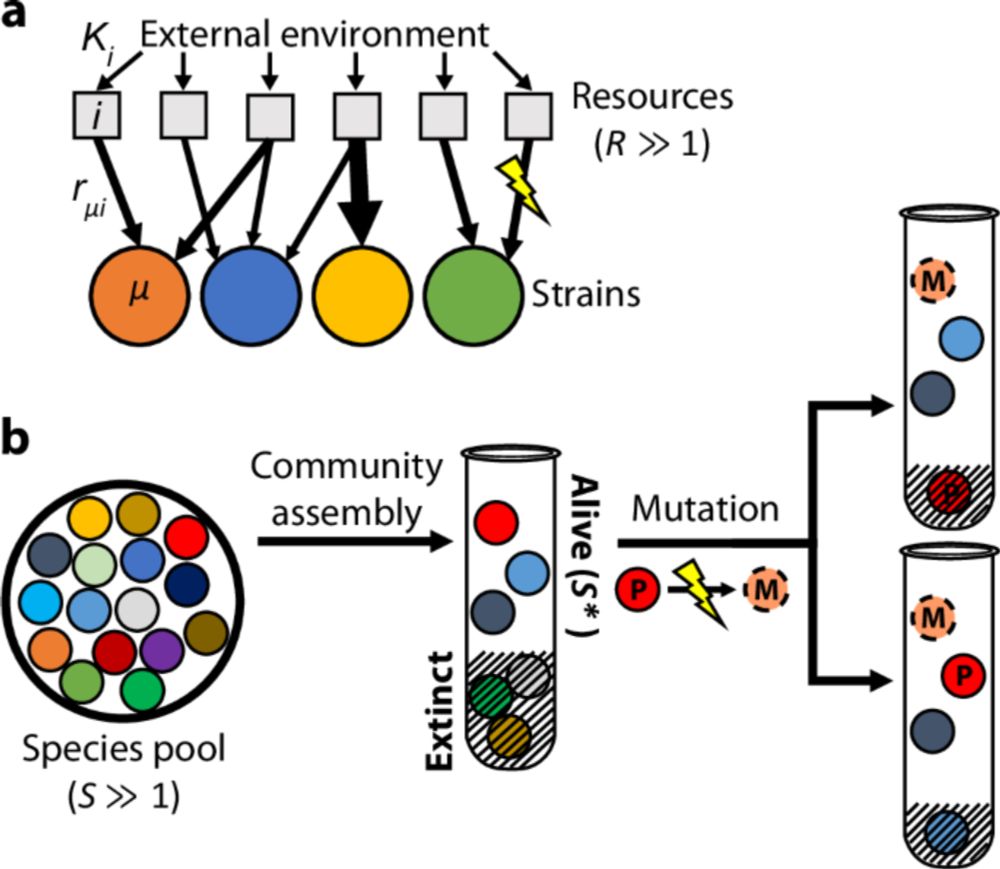
www.biorxiv.org/content/10.1...
www.biorxiv.org/content/10.1...
-in #ISMEComms
with @bedutilh.bsky.social
academic.oup.com/ismecommun/a...
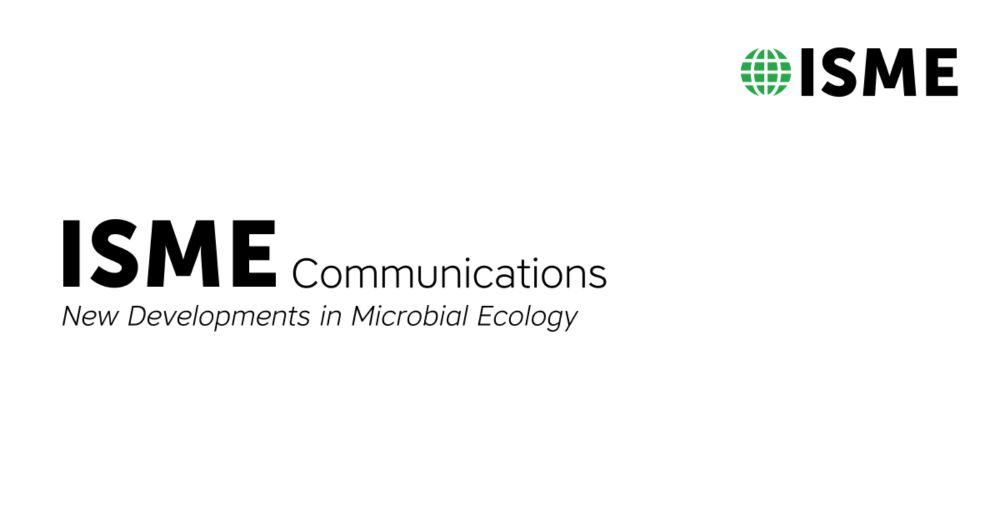
-in #ISMEComms
with @bedutilh.bsky.social
academic.oup.com/ismecommun/a...
Plant-microbe relationship (mutualistic, commensalistic, parasitic) is not fixed, but rather dynamic, depending on the specific context.
We summarize the current knowledge on this.
Hope you enjoy~
www.jstage.jst.go.jp/article/plan...

Plant-microbe relationship (mutualistic, commensalistic, parasitic) is not fixed, but rather dynamic, depending on the specific context.
We summarize the current knowledge on this.
Hope you enjoy~
www.jstage.jst.go.jp/article/plan...
Common mycorrhizal networks facilitate plant disease resistance by altering rhizosphere microbiome assembly
Free share link: authors.elsevier.com/c/1lnTD6t8JE...

Common mycorrhizal networks facilitate plant disease resistance by altering rhizosphere microbiome assembly
Free share link: authors.elsevier.com/c/1lnTD6t8JE...
academic.oup.com/pcp/issue/66/8
Filled with CAPtivating studies on 🪳molecular hijackers, protein regulation, electron sinks, fetilisation regulators, shoot-to-root signalling, 🍅defense, 🌾tolerance, & much more!
@jspp-news.bsky.social
@oxfordunipress.bsky.social
🌱 #PlantScience

academic.oup.com/pcp/issue/66/8
Filled with CAPtivating studies on 🪳molecular hijackers, protein regulation, electron sinks, fetilisation regulators, shoot-to-root signalling, 🍅defense, 🌾tolerance, & much more!
@jspp-news.bsky.social
@oxfordunipress.bsky.social
🌱 #PlantScience
"Academic Publishing Has Become a Racket"
www.wsj.com/opinion/acad...

"Academic Publishing Has Become a Racket"
www.wsj.com/opinion/acad...
Led by UA PhD students Ledford and Geffre @parkergeffre.bsky.social in collab w/ LBNL team @elbrodie.bsky.social Marschmann Karaoz
Led by UA PhD students Ledford and Geffre @parkergeffre.bsky.social in collab w/ LBNL team @elbrodie.bsky.social Marschmann Karaoz
We show how transient microbes can play key roles in plant fitness & microbiota assembly 🦠
The 1st 1st author article for my 2 fantastic PhD students @logansuteau.bsky.social & Louna Coleart-Sentenac 🎉
www.sciencedirect.com/science/arti...
We show how transient microbes can play key roles in plant fitness & microbiota assembly 🦠
The 1st 1st author article for my 2 fantastic PhD students @logansuteau.bsky.social & Louna Coleart-Sentenac 🎉
www.sciencedirect.com/science/arti...
Check out the TOC: arevie.ws/4npcHSW @kamounlab.bsky.social
Check out the TOC: arevie.ws/4npcHSW @kamounlab.bsky.social

www.biorxiv.org/content/10.1...

www.biorxiv.org/content/10.1...
Review on rewilding plant microbiomes—restoring ancestral plant-microbe interactions & revitalizing soil functions—as a roadmap for engineering crops more resilient to climate challenges
www.cell.com/cell-host-mi...

Review on rewilding plant microbiomes—restoring ancestral plant-microbe interactions & revitalizing soil functions—as a roadmap for engineering crops more resilient to climate challenges
www.cell.com/cell-host-mi...
Exciting new single cell datasets for gymnosperms, ferns and lycophytes!
The scale of this study is really amazing!
www.cell.com/cell/fulltex...

Exciting new single cell datasets for gymnosperms, ferns and lycophytes!
The scale of this study is really amazing!
www.cell.com/cell/fulltex...
最近Kamoun发表的博客《Stop displaying journal names on your slides》让我深受共鸣。

最近Kamoun发表的博客《Stop displaying journal names on your slides》让我深受共鸣。
🔗 academic.oup.com/pcp/issue/66/6
▶️Packed with the latest quality research in #PlantScience: #Stomata, #RootBiology, #PlantBiochemistry, #GeneEditing, #PlantSenescence, #PlantEpigenetics, #PlantDevelopment & much more! 🌱🔬🧬🧑🔬
@oxfordunipress.bsky.social
@jspp-news.bsky.social
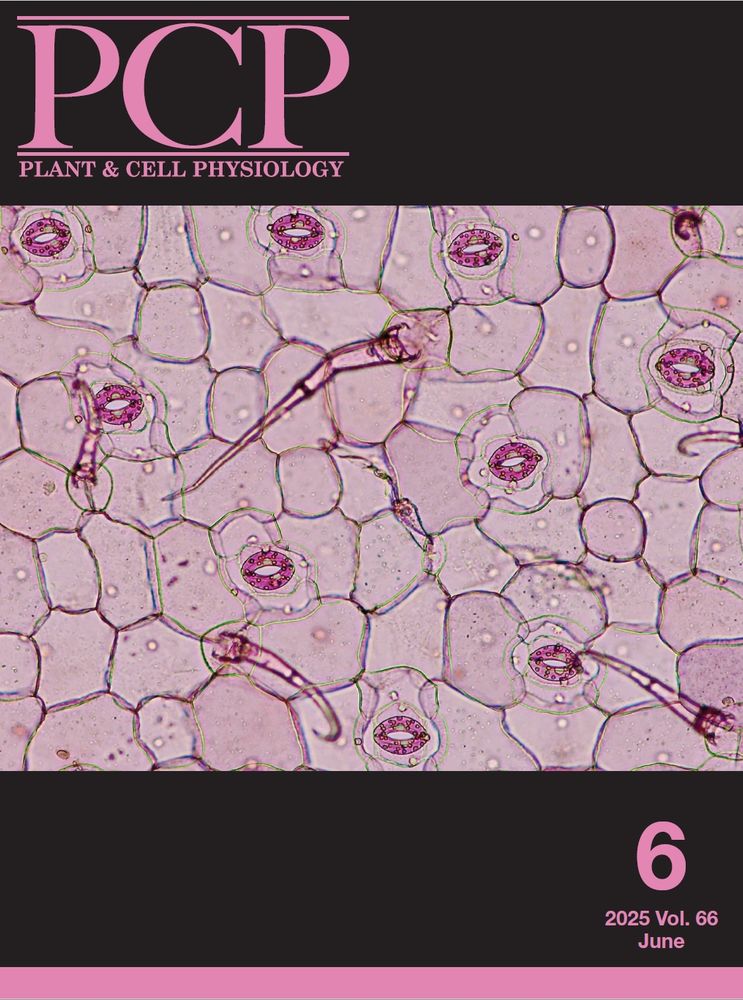
🔗 academic.oup.com/pcp/issue/66/6
▶️Packed with the latest quality research in #PlantScience: #Stomata, #RootBiology, #PlantBiochemistry, #GeneEditing, #PlantSenescence, #PlantEpigenetics, #PlantDevelopment & much more! 🌱🔬🧬🧑🔬
@oxfordunipress.bsky.social
@jspp-news.bsky.social
We used comparative genomics on 72,000+ bacterial genomes to uncover the genetic basis of microbial adaptation to multicellular hosts—plants and animals alike.
www.biorxiv.org/content/10.1...

We used comparative genomics on 72,000+ bacterial genomes to uncover the genetic basis of microbial adaptation to multicellular hosts—plants and animals alike.
www.biorxiv.org/content/10.1...
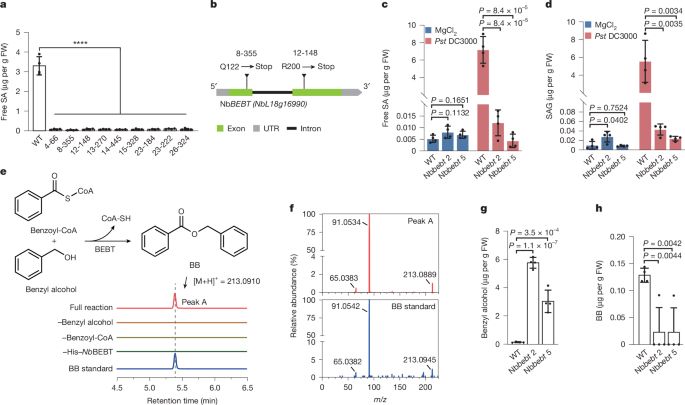
Isochorismate-based salicylic acid biosynthesis appears to have emerged in the Brassicales after the divergence of C. papaya, likely within the timeframe between the divergence of B. maritima and R. odorata.
www.pnas.org/doi/10.1073/...
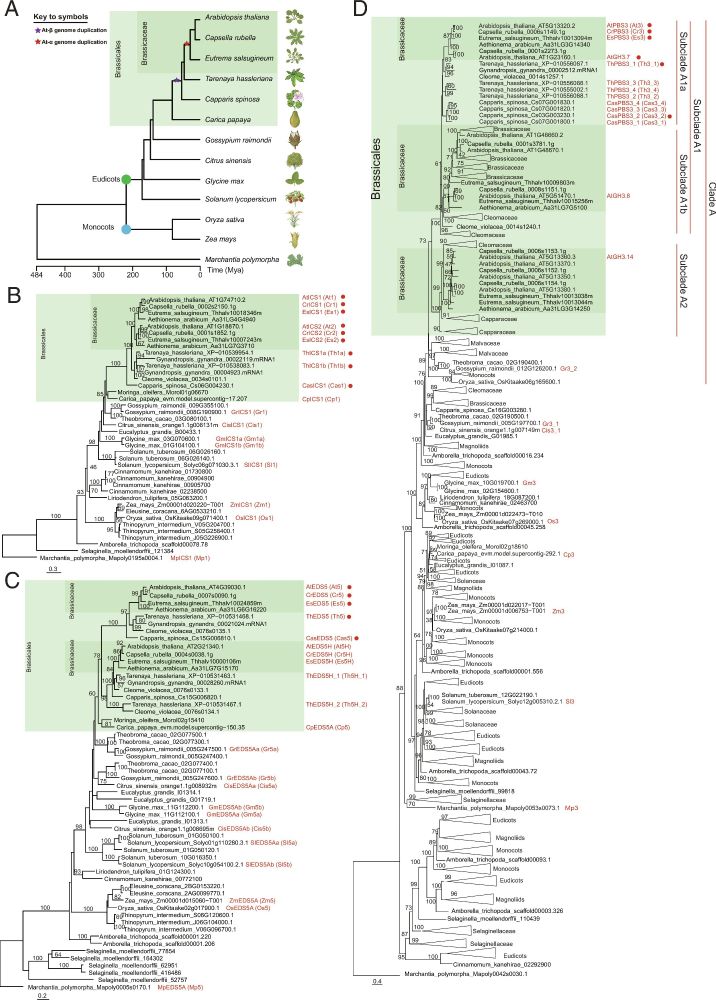
Isochorismate-based salicylic acid biosynthesis appears to have emerged in the Brassicales after the divergence of C. papaya, likely within the timeframe between the divergence of B. maritima and R. odorata.
www.pnas.org/doi/10.1073/...
📅Deadline for Nominations by JSPP members: August 8, 2025 📅Deadline for Self-Nominations: September 18, 2025
Application Guidelines jspp.org/en/awards/ho...
@jspp-news.bsky.social

📅Deadline for Nominations by JSPP members: August 8, 2025 📅Deadline for Self-Nominations: September 18, 2025
Application Guidelines jspp.org/en/awards/ho...
@jspp-news.bsky.social


